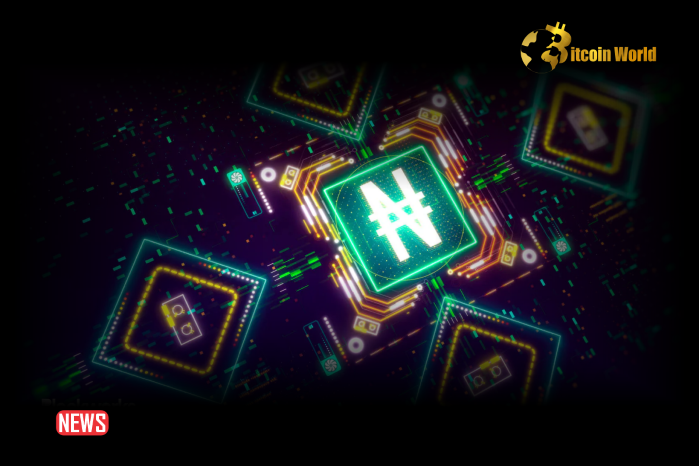Imagine owning a piece of Lagos, Nigeria’s bustling real estate market, with just a few clicks. That’s the vision as Lagos State government embarks on an ambitious plan to tokenize real estate, leveraging the power of blockchain to unlock new investment opportunities and boost its internal revenue. Let’s dive into how this innovative approach could reshape property ownership and investment in Nigeria.
Revolutionizing Real Estate with Blockchain
What exactly does it mean to tokenize real estate? Think of it as converting physical properties into digital tokens on a blockchain. Each token represents a fraction of ownership, making it easier to buy, sell, and trade real estate assets. It’s similar to buying stocks in a company, but instead of owning a share of a business, you own a share of a property.
Here’s a breakdown of the key benefits:
- Increased Accessibility: Tokenization lowers the barrier to entry for real estate investment, allowing more people to participate with smaller amounts of capital.
- Enhanced Liquidity: Digital tokens can be traded more easily than physical properties, providing greater liquidity for investors.
- Improved Transparency: Blockchain technology ensures that all transactions are recorded on a secure, transparent, and immutable ledger.
- Greater Efficiency: Tokenization streamlines the buying and selling process, reducing paperwork and transaction costs.
Lagos State’s Ambitious Plans
The Lagos State government is serious about this initiative, allocating 500 million naira ($314,465) to support the project over the next 16 months. The Ministry of Science and Technology will lead the charge, collaborating with various agencies and partners to bring this vision to life. The goal is clear: to significantly increase the state’s internally generated revenue by making property transactions more attractive and efficient.
Boosting Internally Generated Revenue (IGR)
How will tokenization boost Lagos State’s IGR? By making property transactions more transparent and efficient, the government aims to attract a wider range of investors. This, in turn, will generate additional revenue through property taxes and transaction fees. Furthermore, tokenization can address long-standing issues such as land title fraud and lack of transparency in property ownership.
Consider these potential benefits:
- Increased Investor Confidence: Blockchain-based property records provide greater security and trust for investors.
- Reduced Fraud: Immutable records on the blockchain minimize the risk of fraudulent activities.
- Streamlined Transactions: Tokenization simplifies the process of buying and selling property, reducing delays and costs.
- Attracting Foreign Investment: A transparent and efficient property market can attract foreign investors, boosting the state’s economy.
Collaboration and Budget Allocation
The success of this project hinges on effective collaboration between government agencies, technology providers, and the public. The 500 million naira budget will be used for technology development, staff training, and public education campaigns. The state government is committed to ensuring that the project is implemented efficiently and effectively, delivering tangible benefits for investors and the broader public.
Nigeria’s Progress in Blockchain Policy
Lagos State’s real estate tokenization plan is part of a broader trend toward embracing blockchain technology in Nigeria. The National Information Technology Development Agency (NITDA) has restructured the National Blockchain Policy Steering Committee to reassess the policies guiding the implementation of the country’s National Blockchain Policy, signaling a more positive and proactive approach to blockchain adoption.
Challenges and Considerations
While the potential benefits of real estate tokenization are significant, there are also challenges to consider:
- Regulatory Framework: Clear and comprehensive regulations are needed to govern the issuance, trading, and taxation of real estate tokens.
- Technology Infrastructure: A robust and reliable blockchain infrastructure is essential to support the tokenization platform.
- Public Awareness: Educating the public about the benefits of tokenization and how to participate in the market is crucial for adoption.
- Security Risks: Measures must be taken to protect against cyberattacks and ensure the security of digital assets.
Conclusion
Lagos State’s plan to tokenize real estate represents a bold step toward modernizing its property market and attracting new investment. By leveraging blockchain technology, the state aims to create a more transparent, efficient, and accessible real estate ecosystem. While challenges remain, the potential benefits for investors, the government, and the broader economy are undeniable. As Nigeria continues to embrace blockchain technology, initiatives like this could pave the way for a more prosperous and inclusive future.
Disclaimer: The information provided is not trading advice, Bitcoinworld.co.in holds no liability for any investments made based on the information provided on this page. We strongly recommend independent research and/or consultation with a qualified professional before making any investment decisions.




